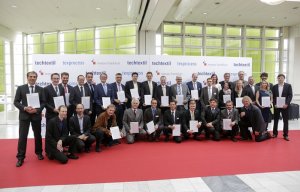
Texprocess Innovation Award 2017 to honour latest developments
Opinion
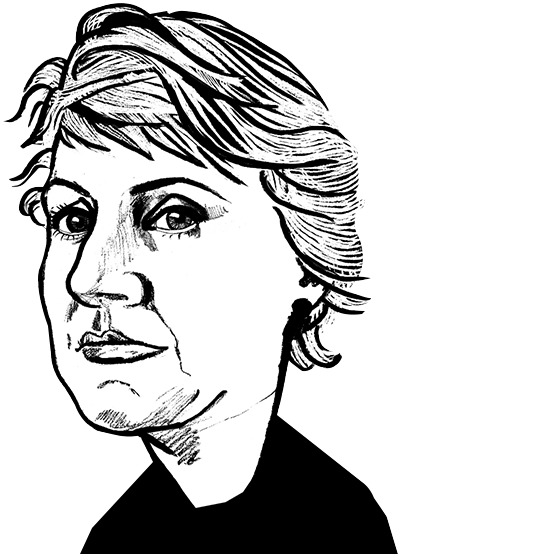

Techtextil and Texprocess trade fairs have opened their doors this morning with more exhibitors than ever before.
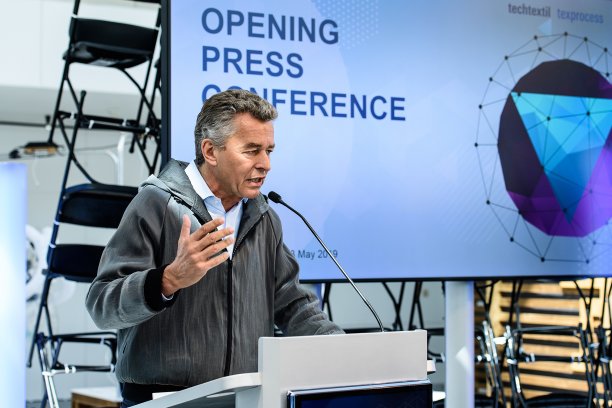
14th May 2019
Marie O'Mahony
|
Frankfurt am Main
Detlef Braun, Member of the Executive Board/ Functional Jacket. Photo: Messe Frankfurt Exhibition GmbH/ Pietro Sutera.”‹
Techtextil and Texprocess trade fairs have opened their doors this morning with more exhibitors than ever before. Techtextil 2019 welcomes 1501 exhibitors from 57 countries while 317 exhibitors from 34 countries are taking part in Texprocess. The spectrum of high-tech textiles for all applications and processing technologies at both fairs has never been so extensive and we had a sneak preview on yesterday’s press tour.
As the co-located shows open, we see technology and sustainability brought together in ways that can provoke and even challenge. Central to this are underlying questions raised around our expectation of the capability of technology on the one hand, and degrees of circularity that are acceptable in the Circular Economy.
The Swedish company Coloreel is an example of the latter. Inspired by the waste they witnessed in industrial embroidery, they have developed a novel process that allows for the thread to be coloured as required during production before being transferred over the embroidery machine so that block or fade hues can be coloured to fit the exact length of stitch needed in the design (as seen in this feather motif).
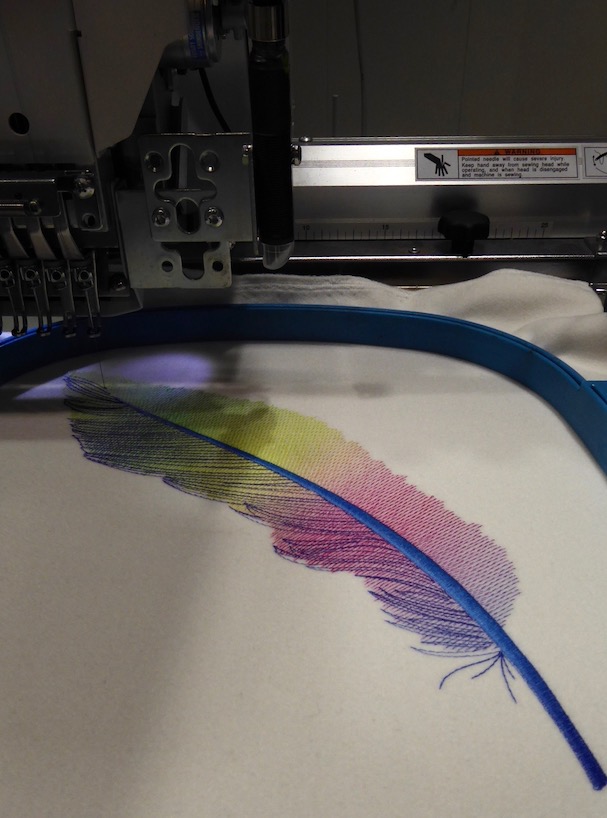
Coloreel threads in action demonstrating their potential to add graduated colour to embroidery without the need to change thread. © Marie O’Mahony.
One machine is needed to colour the thread, and these can then be used by the manufacturer’s regular machines. As a result, shading and blending colours take less time, thread is no longer wasted in the changeover or in finished line colour disposal. Cash-flow is not taken up with bulk inventory or the storage facilities it occupies.
Joakim Staberg, Funder and Investor Relations for Coloreel is hesitant to reveal much detail about the colour used citing proprietary protection. Though this makes it difficult to gauge whether it is sustainable or circular the reticence of a new company with a great idea to disclose all at an early stage is understandable.
Should they be taken to task for now putting all their (green) cards on the table, I think not. To insist will push innovators and small companies pursuing the ground-breaking idea back to their laboratories where all but the well-financed will struggle to survive.
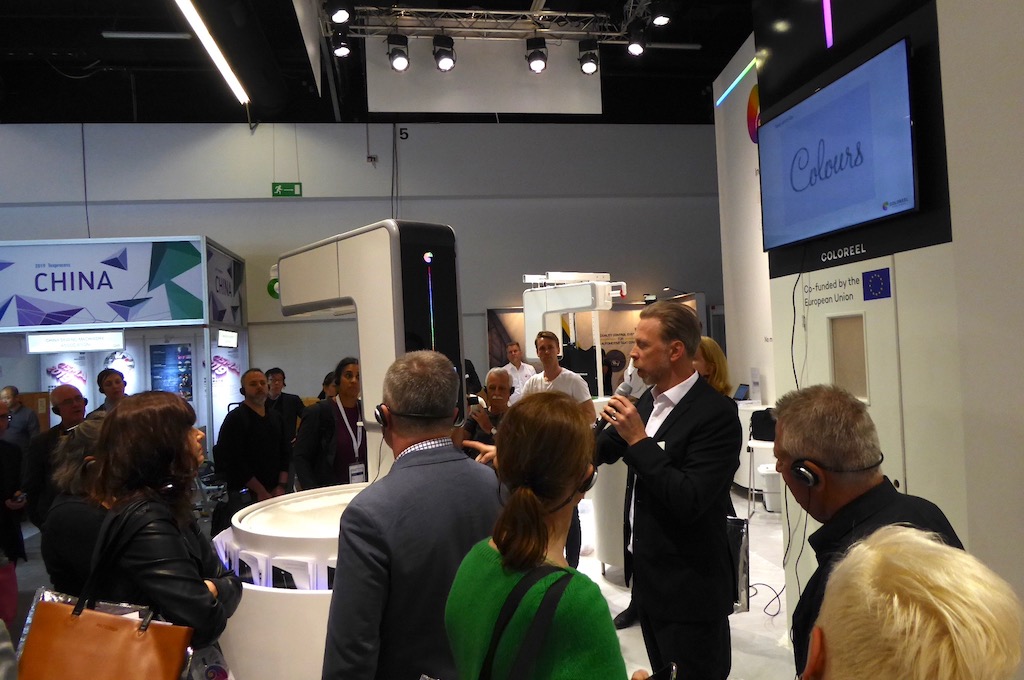
Joakim Staberg, Funder and Investor Relations at Coloreel presenting the thread innovation at Techtextil. © Photo: Marie O’Mahony
One of the things that Techtextil does very well is attract a great range of disciplines in exhibitors. This means that there is a movement of ideas across with a particular approach to nonwovens used in geosynthetics providing a solution in health or automotive also, before returning anew to geosynthetics.
In the ‘City of the Future’ display, Dutch Textile architect Samira Boon combines her prowess with textiles with a deep understanding of the need for a fresh approach to fabric in interiors. Moving beyond traditional Gobelin Tapestry, she utilises Japanese Origami – with its origins in both paper and (pleated) textiles to create structures that are dynamic and flexible.
Architectural in scale, they provide acoustic insulation and help to achieve energy efficiency within the building. Archi Folds has been developed with the TextilLab, Tilburg as well as the University of Tokyo. Innovation, even in a technological age, requires a complex set of skills and disciplines.

Business intelligence for the fibre, textiles and apparel industries: technologies, innovations, markets, investments, trade policy, sourcing, strategy...
Find out more